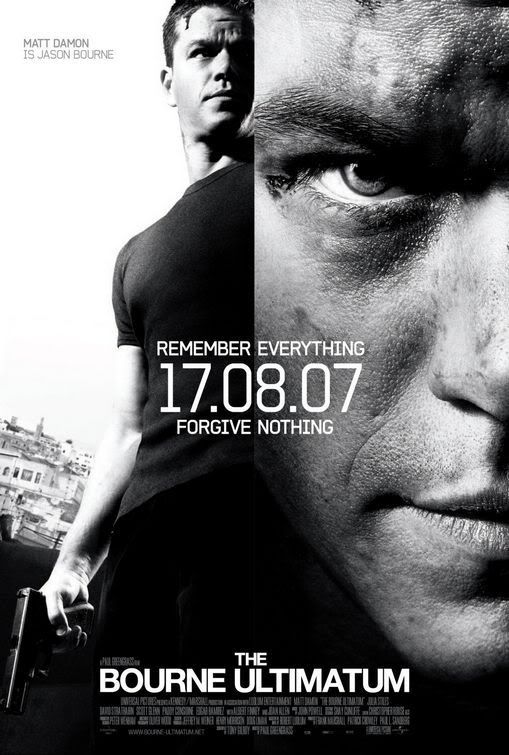
"The Bourne Ultimatum," the culminating film of the trilogy begun five years ago with "The Bourne Identity," gets under way with a burst of nervous energy and extreme urgency and never lets up. It's a 114-minute chase film, dashing through streets and rooftops of any number of international urban sprawls with Matt Damon's redoubtable Jason Bourne hot on the trail of -- himself. That might be the genius of the series: A James Bond-like character who can escape any pickle and thwart any villain, but all in a quest for his own identity. Jason is not out to save the world -- though he might do that -- he'd just like to know his real name.
Director Paul Greengrass, who only made the astonishing "United 93" in the interim, returns for his second "Bourne" film (after 2004's "The Bourne Supremacy") to bring the roller coaster ride to an end in a dead heat where all the plot points and (surviving) characters of the three films converge. Audiences will eat it up: This is a postmillennial spy-action movie pitched to a large international audience. You hardly need subtitles. The cool thing about this movie is that the real revenge is not against bad guys in the CIA, but against the high-tech world that maddens mere mortals. Your mobile phone drops calls? Your car needs towing after a parking-lot fender-bender? Well, Jason can switch phones and patch into the world from trains, subways, stairwells and undergrounds. Any car he steals leaps up sharp inclines, plunges off of roofs or smashes into other vehicles until reduced to smoldering metal yet can still outrace any car on the block.
And his body! Blow it up with a bomb, expose it to brutal hand-to-hand combat or throw it into the East River, and it gets up with a few manly scratches.
Yes, there are a few plot holes. But few are likely to care. A smart cast of veteran actors gives the film just enough emotional heft to carry you through the silliness. Damon has definitely made Bourne his own. For all his physical dexterity and killing instincts, Damon brings a Hamlet-like quality to the CIA-trained assassin suffering from a five-year spell of amnesia who can never quite tell who his friends are, or rather, which of his enemies might be a true friend.
Joan Allen returns as the CIA investigator who has slowly come to see that Jason might be the real deal. And Julia Stiles as an in-over-her-head agent again shows up for no credible reason other than the producers want her back. (They're right.)Newcomers include a flinty and increasingly antsy David Strathairn as a head of a black-ops program that has its real-life model in all the extralegal programs sponsored by the current administration. At one point, he declares "you can't make this stuff up," and you know the filmmakers are nodding toward today's Washington.
Scott Glenn appears as a law-ignoring CIA director, though he might remind you more of the current attorney general, and Albert Finney crops up toward at the end as a Dr. Mengele figure behind a behavior-mod program that created any number of Jason Bournes.
The movie swings through Moscow (filched from the previous film); Paris; Turin, Italy; London; Madrid; Tangiers, Morocco; and New York as Jason hones in on who did this to him. (That's another thing -- he never has to endure airport security checks!)
A fatigue factor sets in somewhere; it might vary from person to person. Yet the sharp intelligence behind the screenplay by Tony Gilroy, Scott Z. Burns and George Nolfi (though other hands reportedly contributed) gives the plot, salvaged from the Robert Ludlum Cold War spy novel, a genuine buoyancy. The film is trying to get at something, no matter how crudely, about corruption within the American espionage system, with its secret reliance on renditions and torture in the name of freedom. This might not be the best way to illustrate the problem with credibility-stretchers at every turn. But then again, how many people look at documentaries?
Greengrass tops himself with each passing minute by staging terrific stunts and chases through crowded streets, buildings and rooftops. Cinematographer Oliver Wood and editor Christopher Rouse gives the film its lightning speed and jagged edges with a close, hand-held camera and quick edits while John Powell's score pulsates pure adrenaline.

2 comments:
very good film
You said that just like I would.
I just found out that there is going to be a HBO Follow up on "The Bourne"
series. For more information and to leave your comments please Go
Here
Post a Comment